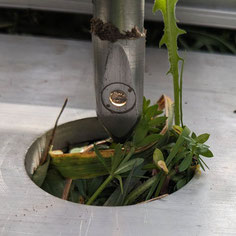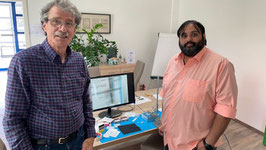PHENET - Push-down Root Imaging Probe
Novel Root Imaging Probe for Field Applications

There is an urgent need for Europe and the world to find ways to transition agroecosystems towards agroecology and sustainability in order to promote food security, climate resilience, biodiversity and the restoration of soil carbon stocks. The collaborative efforts of key European Research Infrastructures (RI) in plant phenotyping (EMPHASIS), ecosystem experimentation (AnaEE), long-term observations (eLTER) and data management and bioinformatics (ELIXIR) are coming together in the EU-funded project known as PHENET.
Working alongside BOKU Vienna and our partner company S4 mobile laboratories, our efforts within the PHENET project are focused on developing a novel root imaging probe. Starting with the recent "Root imaging probe"-kick-off meeting at the VSI laboratories in Alland, this probe will be designed to detect roots as it penetrates the soil - allowing root length density and rooting depth profiles to be calculated together with soil density data. As a state-of-the-art tool for root phenotyping, it aims to fill the existing methodological gap and provide a practical alternative to destructive root coring followed by root washing. The novel push-down root imaging tool provides breeders and managers with a novel, easy-to-use and ready-to-implement solution for one-off or frequent root distribution and dynamics observations - while high-resolution and/or automated minirhizotron (MR) cameras remain the first choice for long-term root dynamics monitoring in UHD after the installation of MR root observation tubes and a latency period. Both root imaging tool types, however, allow vital root density and depth distribution data to be incorporated into decision-making, addressing aspects such as genotype resource uptake, C sequestration potential and irrigation infiltration.

In later stages of development, the root imaging probe is expected to integrate seamlessly with S4 Mobile Laboratories' groundbreaking 'Subterra Green' device, a novel soil spectrometry probe. This powerful combination is expected to make field measurements of both soil and roots accessible and ubiquitous. Vienna Scientific Instruments is honoured to contribute to this important project, which is dedicated to identifying resilient combinations of crop species/genotypes and management practices - to better withstand the impending challenges posed by evolving climate scenarios to cropping systems worldwide.
